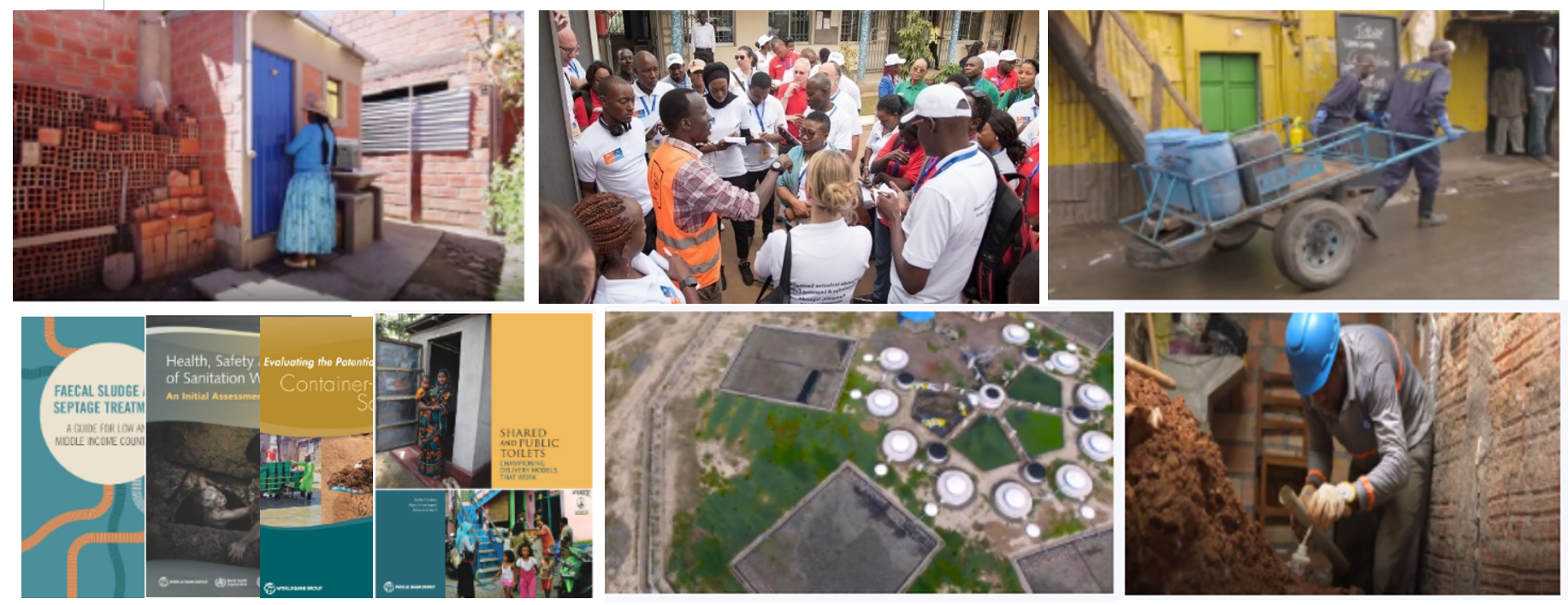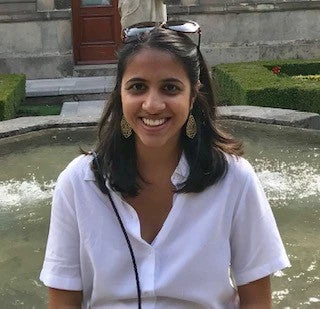 Citywide Inclusive Sanitation (CWIS)
Citywide Inclusive Sanitation (CWIS)
As the world urbanizes, the challenges of urban sanitation continue to increase, with urban population growth dramatically outpacing gains in sanitation access. Today, 17% of the world’s urban dwellers lack access to basic sanitation and only 43% benefit from safely managed services. In cities across the globe, even where piped water exists, sewerage and septic tank coverage lags far behind.
Business as usual—where conventional sewerage and wastewater treatment are considered as the only solution—will not help us meet the SDG goal of providing safely managed sanitation for all by 2030. Citywide Inclusive Sanitation (CWIS) aims to shift the urban sanitation paradigm to focus on the whole sanitation service chain and on access for all, especially the poor. By promoting a range of technical options – both on-site and sewered, centralized or decentralized – CWIS aims to provide optimized sanitation solutions that are tailored to the realities of the world’s burgeoning cities and that can adapt over time as the urban reality changes.
Together with other key development partners, the World Bank has been at the forefront of the growing CWIS movement. The Bank’s CWIS initiative, funded by the Global Water Security and Sanitation Partnership (GWSP), promotes alignment of Bank urban sanitation projects with the CWIS agenda through support to Bank teams and their government counterparts under four pillars: Knowledge and Learning; Operational Support; Tools and Resources; and Building Partnerships.
Much of the CWIS team’s work focuses on sharing urban sanitation experiences, innovations and approaches from around the world, making these accessible to Bank and government project teams in order to positively affect urban sanitation investments. To date, this support has assisted in the identification, design and implementation of sanitation interventions in over 25 countries, influencing some USD 6 billion of investments with over 14 million direct and indirect beneficiaries.
To further these Citywide Inclusive Sanitation outreach and engagement efforts, the World Bank is launching its CWIS web hub (alias: www.worldbank.org/cwis), where tools, resources, good practice documentation and other materials are collated to further support CWIS advocacy, design and implementation.
“Operational support and knowledge sharing are at the core of the CWIS work,” says Maria Angelica Sotomayor, World Bank Practice Manager who oversees the global Citywide Inclusive Sanitation agenda. “The CWIS initiative supports our clients to scale-up sanitation solutions, helping them achieve SDG 6.2, by mobilizing expertise to operationalize and embed CWIS principles in new and ongoing urban sanitation investments.” “In addition,” she says, "the team provides tailored Knowledge & Learning (K&L) events for Bank teams, their government counterparts and development partners, to promote peer-to-peer learning on good practice urban sanitation service delivery."
Pascaline Ndungu, a Water Supply and Sanitation Specialist based in Nairobi, highlights that a national CWIS K&L event in Kenya, together with regional events in Durban, Brasilia and Kampala, helped galvanize a shift in Kenya’s sanitation dialogue, broadening the scope to a Countywide approach which considered both onsite and sewered sanitation solutions, and leading to the request for a new national project. “We were able to work with the CWIS team to operationalize Countywide Inclusive Sanitation through a participatory planning process, while piloting novel approaches such as condominial sewerage.”
Irma Setiono, a Senior Water Supply and Sanitation Specialist based in Jakarta, recounts how urban sanitation activities and investments in Indonesia were previously siloed and disconnected, leading to multiple challenges and little progress. “Through the national CWIS workshop and other engagements we increased government interest and understanding, resulting in the incorporation of CWIS principles into a new national project and into key national sector documents,” she says.
The CWIS team supports project preparation and implementation by deploying tools and expertise on the ground. “With CWIS support we carried out sanitation mapping studies to assess the status of the sanitation service chain in Yemen’s two major cities, resulting in prioritized short- to long-term investments which are feeding into the preparation of our new project,” says Naif Mohammed Abu-Lohom, Senior Water Resources Management Specialist based in Amman.
Alfonso Alvestegui, Senior Water Supply and Sanitation Specialist in La Paz, affirms that “The CWIS Costing & Planning Tool, together with pilot interventions, helped determine the financial impact of alternative approaches to safe sanitation in Bolivia’s largest city and build the case for adopting the CWIS approach, which in turn informed the national sanitation strategy”.
Danielle Pedi, Senior Program Officer at the Bill & Melinda Gates Foundation, applauds the depth and breadth of the Bank CWIS team’s engagements. "These types of knowledge exchange will have to happen more often and more systematically so that teams can move from a learning phase to being able to do CWIS-aligned projects with scale and speed.” Pedi adds “We're very pleased to be working alongside the World Bank, which is at the vanguard of the CWIS movement. CWIS really is a mindset shift from simple infrastructure provision towards safely managed services for everyone, which will require a lot to happen as we build partnerships and focus on moving to scale."
Moving to scale is a goal that Catherine Tovey, World Bank Practice Manager for Water in East Africa, shares. “This can happen if we're able to convince our clients to go forward in a significant way. We should look to see how we can maximize the number of countries that adopt CWIS approaches and aspire to have sustainable inclusive cities and sustainable access to sanitation across Africa.”
Dean Cira, World Bank Lead Urban Specialist, sees great potential in the water and urban sectors working more closely together. “The kinds of integrated and innovative solutions that CWIS promotes apply equally to the needs of the urban poor and to those undergoing forced displacement who make up a significant part of urban growth in some countries.” He’s convinced that the coming together of urban and water sector teams can help identify holistic solutions, collaboratively building on the CWIS approach, to also allow the delivery of appropriate sanitation services through urban projects.
The World Bank continues to expand its CWIS efforts by building on such partnerships and by expanding its advocacy, learning and operational support work through the four CWIS pillars – with the overall aim of shifting the urban sanitation paradigm towards an inclusive approach that helps deliver safely managed sanitation services to all in an increasingly efficient way. We invite you to visit our new CWIS web hub to learn more about the Bank’s Citywide Inclusive Sanitation initiative!







Join the Conversation